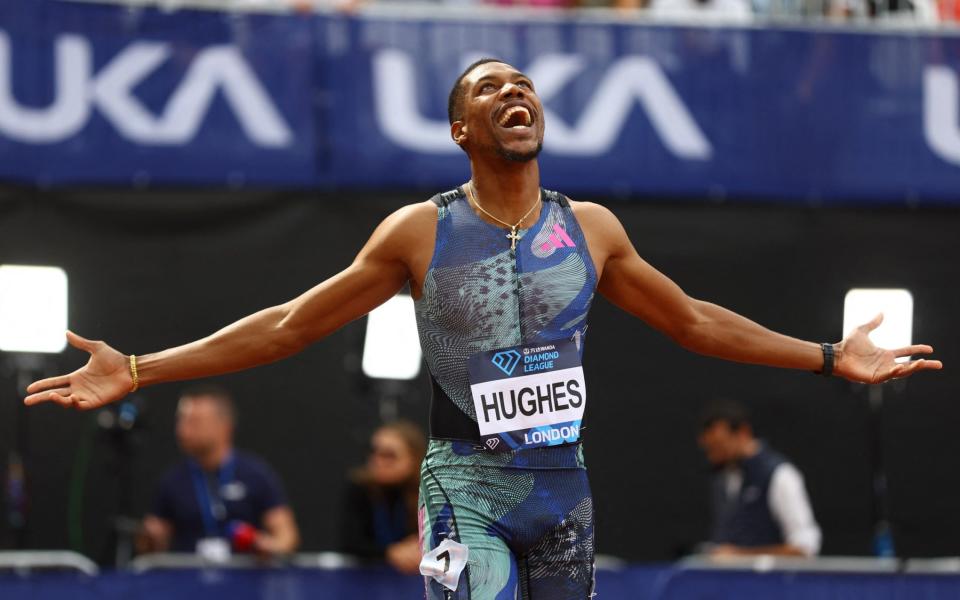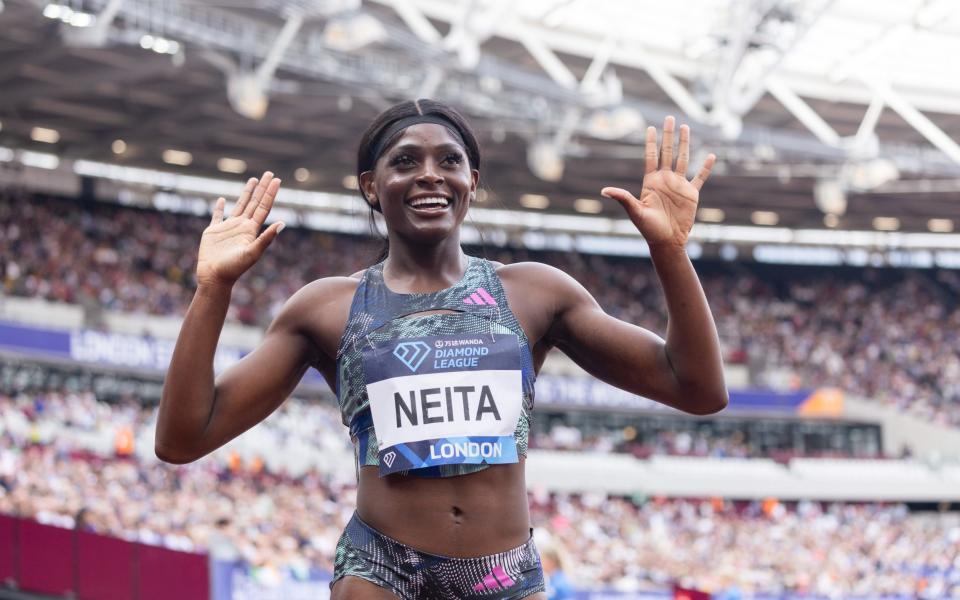Crisis-hit UK Athletics post losses of £3.7m as struggles without BBC income grow

The devastating impact of UK Athletics’s failure to replace BBC income and a major sponsor will be disclosed in new financial figures showing losses of £3.7 million.
Ahead of next year’s Paris Olympics, the crisis-hit governing body will publish accounts imminently which reveal that it lost £2 million alone last year on hosting major events, notably the Diamond League and the World Indoor Tour.
Deep financial pressures have already led to redundancies and pension savings totalling £1.3 million and, while up-front payments from a renegotiated Nike contract have allayed bankruptcy fears, further cuts will be made.
It all follows the shock departure only six weeks ago of technical director Stephen Maguire amid tensions over budgets ahead of the Olympics.
There will be no World Indoor Tour meeting in Birmingham next February and Ian Beattie, the UKA chairman since 2021, has also warned that there is “pressure” on events outside of the core world-class track programme, such as in cross-country, road and junior competitions.
Beattie referenced how British teams in ‘ultra’ endurance events had already part-funded themselves in championship races and expects that “model” to continue. The costs of safeguarding cases will also be brought “under more control” with the creation of an Independent Integrity Unit to deal with cases.
“We’ve lost sponsorship money, broadcasting money,” said Beattie. “The model hasn’t been changed probably quickly enough … and then we’re left with a cost base that’s too high for the income that comes in.
“Going forward, the organisation will be smaller and events will be done differently. We are looking at a much leaner organisation.”
The Diamond League event at London’s Olympic Stadium in July racked up six-figure losses despite the sale of 50,000 tickets – the biggest crowd at an athletics meeting anywhere in the world – and it being screened live on BBC.

The BBC ended their £3 million a year contract with UKA in 2020 and, as well as hefty athlete fees and expenses, UK Athletics actually covered some of the costs for the BBC to broadcast the event this year.
Despite Britain’s athletes producing their best World Championships performance since 1993 just over three months ago, there has also still been no lead UKA sponsor since the dairy company Muller ended its seven-year commercial partnership last year.
Attempts to generate interest and raise athlete profiles in a behind-the-scenes documentary series, potentially on the BBC, ahead of next year’s Olympic Games have so far also not yielded a commission.
Next summer’s London Diamond League event will still go ahead and UKA have also been exploring a potential new partnership with the London Marathon and the Great North Run organisers to stage events from grass-roots to elite.
In the longer-term, Beattie also acknowledged that the redevelopment of the Crystal Palace national sports centre could provide an alternative Diamond League option with lower overheads
Funding for Olympic athletes is largely ringfenced from National Lottery income and, with £22.8 million distributed by UK Sport for the current Paris cycle, UKA will continue with a selection policy which means only selecting athletes considered capable of reaching the top eight. Katarina Johnson-Thompson and Josh Kerr both won world gold medals last summer and the likes of Zharnel Hughes, Dina Asher-Smith, Keely Hodgkinson, Jake Wightman, Laura Muir and Matthew Hudson-Smith also have the potential to become big stars next summer.
Beattie stressed that there is a risk to UK Sport funding beyond 2025, which is largely based largely on medal potential, and said that any reduction could “significantly reduce the performance of athletes at Olympic and World Championships”.
There is more financial confidence going forward, however, with Beattie stressing that the Nike contract has helped the organisation to have £6.5 million cash in the bank as of March 31, 2023, which was not on the final profit/loss balance sheet. UKA hope to again break even from 2025.
“There simply wasn’t enough commercial income,” said Beattie. “You need a sponsor and/or serious broadcasting. I’m not underestimating these numbers at all, and it’s clearly a tough time.
The environment’s difficult and nobody gives us money easily.
“The important point, though, is to note that cash flow profile of the organisation means we have the time. We won’t run out of cash. On that basis, I and the board are confident that UKA as an organisation will survive.”

 Yahoo Sport
Yahoo Sport 





































